Evaluation of an integrated hydrocarbon sensor array system for the detection of dissolved oil components in sea water and its potential application in seepage exploration*
Xiubin Qi A , Emma Crooke B , Andrew Ross C , Charlotte Stalvies D , Trevor Bastow E , Stéphane Armand F and Herbert Volk GA CSIRO Petroleum 26 Dick Perry Avenue, Perth, WA 6151. Email: Xiubin.Qi@csiro.au
B CSIRO Petroleum 26 Dick Perry Avenue, Perth, WA 6151. Email: Emma.Crooke@csiro.au
C CSIRO Petroleum 26 Dick Perry Avenue, Perth, WA 6151. Email: Andrew.Ross@csiro.au
D CSIRO Petroleum 26 Dick Perry Avenue, Perth, WA 6151. Email: Charlotte.Stalvies@csiro.au
E CSIRO Land and Water Underwood Avenue, Floreat park, Perth, WA 6014. Email: Trevor.Bastow@csiro.au
F CSIRO Petroleum Riverside Corporate Park, 11 Julius Avenue, North Ryde, NSW 2113. Email: Stephane.Armand@csiro.au
G CSIRO Earth Science and Resource Engineering Riverside Corporate Park, 11 Julius Avenue, North Ryde, NSW 2113. Email: Herbert.Volk@csiro.au
The APPEA Journal 50(2) 724-724 https://doi.org/10.1071/AJ09088
Published: 2010
Abstract
Marine surveys for the detection of naturally seeping hydrocarbons require a wide range of complementary remote sensing and geochemical techniques in order to achieve reliable data interpretation and prediction. Compared with current geochemical techniques such as sniffers and sea bed head space gas analysis, oil-in-water hydrocarbon sensors can provide real-time chemical information. The use of these sensors, in combination with current methods, offers a potentially important aid in achieving an integrated approach.
In this study, CSIRO Petroleum has constructed a hydrocarbon sensors array that is composed of three groups of sensors that target volatile mono-aromatic hydrocarbons, poly-aromatic hydrocarbons at low concentration and oil films, respectively. This configuration allows us to have a comprehensive map of hydrocarbon distribution in water samples in real time.
The variety of response times, sensitivities and operating conditions of the sensing devices has been considered, in order to design a flow tank and develop suitable monitoring and control software for the array. Chemometric tools such as principle component analysis (PCA) are used for data analysis and prediction model creation. Results will be presented from the evaluation measurements carried out in three stages. These include: laboratory evaluation of the sensor array to the dissolved oil components of a series of crude oil samples in synthetic sea water; sensor responses to natural sea water samples; and, initial field studies during surveys in Australian sea waters. To our knowledge, there have been no previously recorded instances of using such a hydrocarbon sensor array for oil and gas exploration.
Keywords: seepage exploration, hydrocarbon sensors, aqueous sensing, sensor array, PCA analysis, fluorometer, volatile organic compounds, BTEX
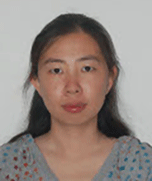
Xiubin Qi received her BSc and MSc in physical chemistry at the Nanjing University (China), in 1999 and 2002 respectively. She then obtained a PhD in analytical chemistry from the University of California, Davis (USA) in 2007, where she worked on nanowire-based chemical sensors. Xiubin joined CSIRO in 2008 as a research scientist and is presently working on research and development of hydrocarbon sensors through integration of multidisciplinary techniques that involve material science, instrument programming/automation and statistics. |
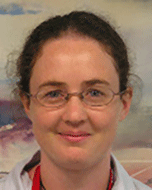
Emma Crooke graduated from the University of New South Wales in 2006 with a Bachelor of Engineering, majoring in industrial chemistry. She was employed as a year-in-industry scholar in 2004 in the Environment Division of the Australian Nuclear Science and Technology Organisation, and returned to work in the division from 2005 to 2007. She now works as a research scientist at CSIRO with interests in analytical chemistry, instrumentation and sensor development. |
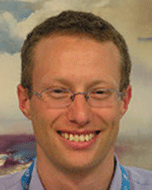
Andrew Ross works as a research scientist within the Earth Science and Resource Engineering division at CSIRO. Since 2005 he has been leading the development of new technology for offshore seep detection. This primarily centres on the use and development of hydrocarbon sensors that can be deployed in conjunction with current marine survey equipment. Andrew previously worked at CSIRO in the fluid history investigation group, investigating palaeo fluid migration. He has a BSc (Hons) in marine biology and oceanography from the University of Wales, Bangor (1998) and subsequent MSc and PhD qualifications in petroleum geosciences from the University of Newcastle-upon-Tyne (2000 and 2004). |

After completing a degree in earth sciences at the University of Oxford, Charlotte went on to pursue a PhD in organic geochemistry at Newcastle University, UK, investigating the hydrocarbon biomarker signals of early life in Proterozoic organic matter, using the novel technique of catalytic hydropyrolysis. Charlotte joined the Petroleum Resources Division of CSIRO in February 2008 working on four six-month projects over a two year period, on topics such as characterisation of fluid inclusion oils from their spectral attributes, and the dissolution of oils in water. |
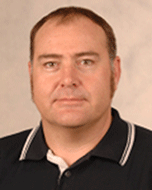
Dr Trevor Bastow graduated with a BSc (Hons) in chemistry in 1991 and with a PhD in organic geochemistry in 1998 from Curtin University of Technology. He has worked as a research fellow at Curtin University of Technology and as a research scientist at Fisheries WA. He now works as a research scientist at CSIRO researching the occurrence, fate and analysis of petroleum hydrocarbons in groundwater and soils. |
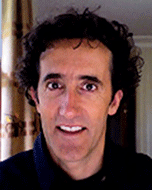
Stéphane Armand is working as a research assistant in the organic geochemistry team of the Environmental Science and Research Engineering Group in North Ryde, Sydney. He joined the team in May 2009 after previously working for 8 years in the CSIRO Marine Research Division in Hobart. He has a physics background after a University Diploma in Grenoble, France and many experiences in different laboratories (ANU Canberra and CEA, LETI in Grenoble). |

Herbert Volk has been a geologist with CSIRO Petroleum since 2000, leads the Petroleum Systems Stream and is team leader of a group of organic geochemists. He is involved in many projects in the organic geochemistry and petroleum microbiology domain and has experience with: oils; source rocks and organic matter from the Proterozoic to the Holocene; fluid inclusion oil geochemistry; petroleum microbiology; and, basin modelling. He was awarded an MSc degree (1996) in geology from the University of Erlangen, Germany, and a PhD from the University of Aachen, Germany. Member: AAPG, EAOG and PESA. |
References
Brown, H., Goodman, R., and Caneari, G, 1987—Where has all the oil gone? Dispersed oil detection in a wave basin and at sea. 1987 International Oil Spill Conference, Washington, 307–312.Green, D., Buckley, J., and Humphrey, B., 1982—Fate of Chemically Dispersed Oil in the Sea, A Report of Two Field Experiments. In: Environmental Protection Service Report EPS 4-EC-82-5, Environment Canada, 150.
Lang, D., Bastow, T.P., van Aarssen, B., Warton, B., Davis, G.B., and Johnston, C.D. (2009). Polar compounds for the dissolution of weathered diesel. Ground Water Monitoring and Remediation 29, 85–93.
MacGregor, D.S. (1993). Hydrocarbon habitat and classification of inverted rift basins. Marine and Petroleum Geology 10, 606–19.
Shaffer, R., Rose-Pehrssona, S., and McGill, R. (1999). A comparison sensory array pattern recognition algorithms. Analytica Chimica Acta 384, 305–17.


